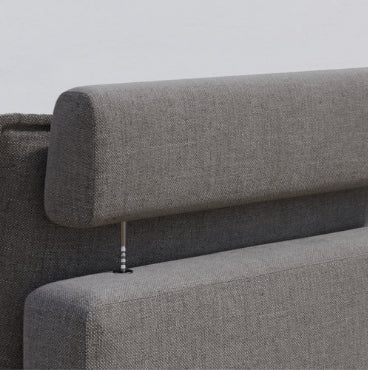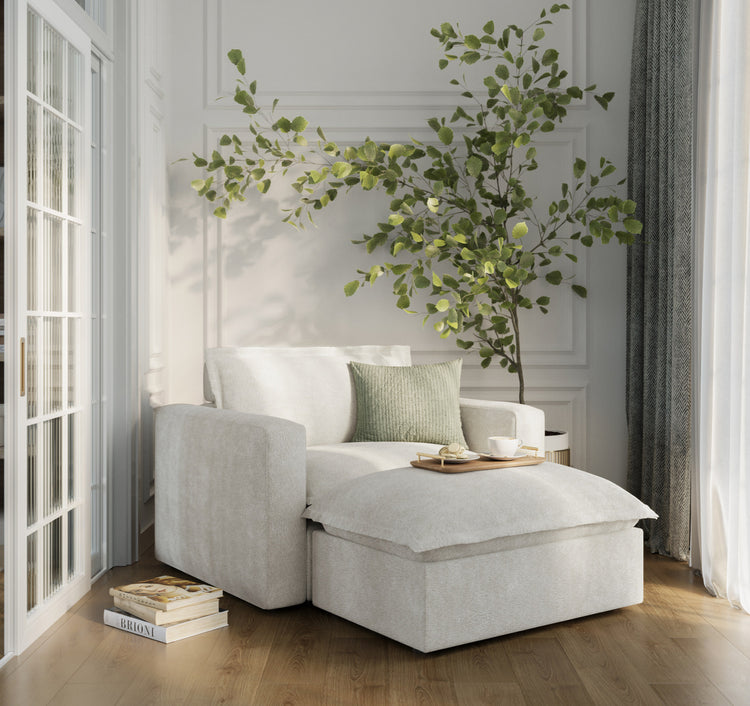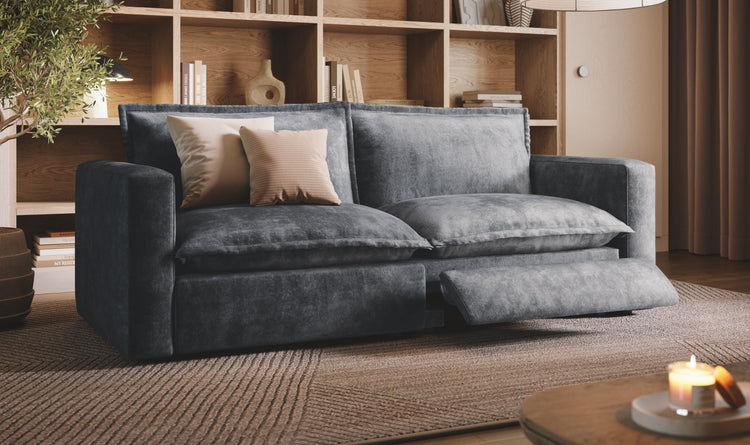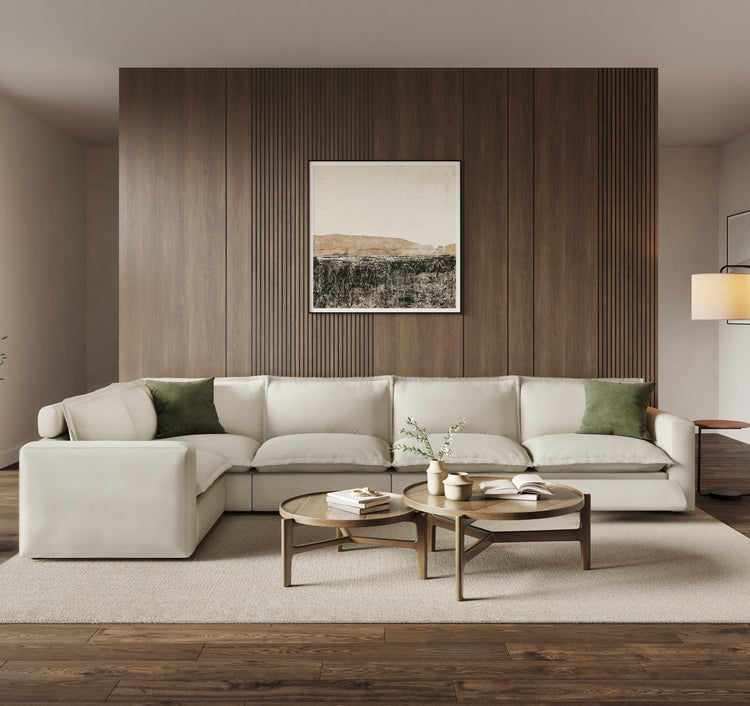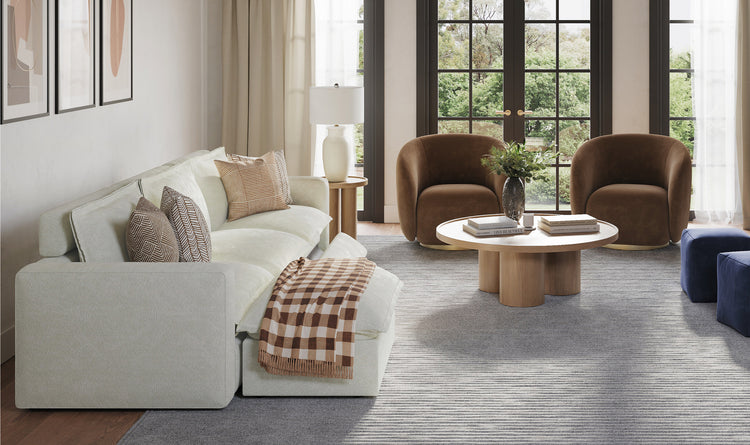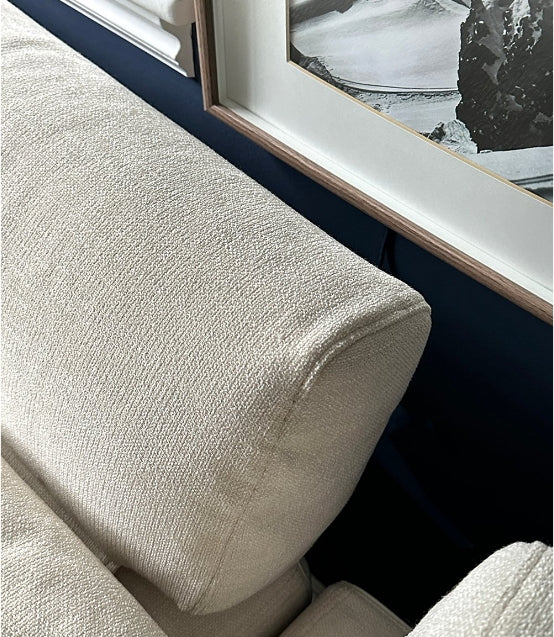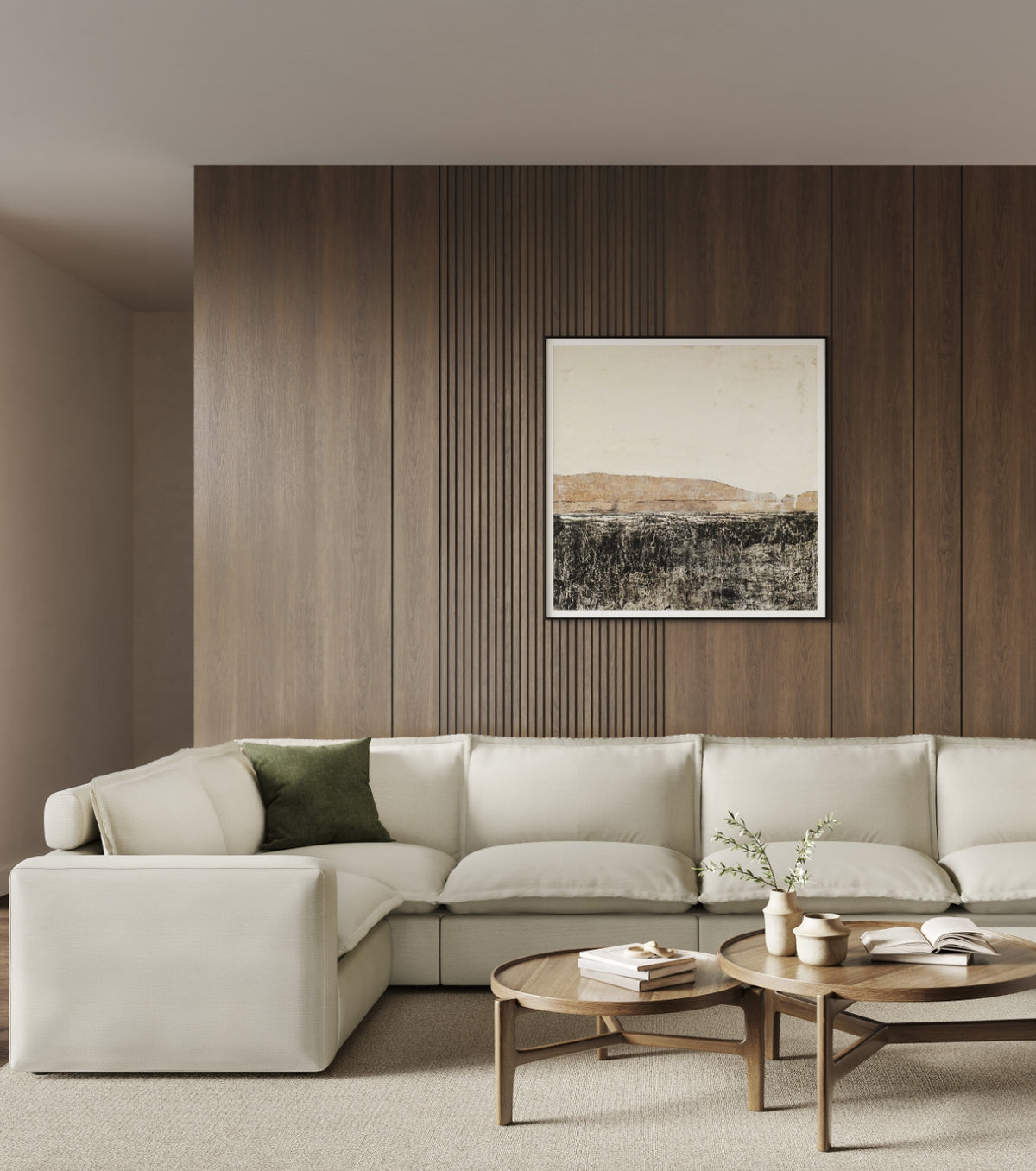Getting comfortable in your recliner might seem straightforward, but there's a trick to it: good posture. It's the key to enjoying your relaxation time without any aches later on. The right way to sit can help you avoid pain, breathe better, and keep your blood flowing well. Plus, it takes care of your joints. A few easy adjustments to how you sit can make all the difference. Let's look at how sitting properly in your recliner can improve your comfort and health, and show you how to do it just right.
Why Is It Important to Have Good Posture in Your Recliner?
1. Prevents Soreness and Aches
Maintaining good posture in a recliner helps to ward off the discomfort that often comes from sitting incorrectly. By ensuring your spine aligns with the natural curvature of the chair and your feet rest comfortably, your body won't be forced into unnatural positions that can lead to muscle stiffness or joint pain. This means you can enjoy longer periods of relaxation without the nagging pains that might otherwise creep up after spending time in a poorly designed chair or slouching.
2. Enhances Breathing Efficiency
Proper posture allows your lungs the room to expand fully, facilitating better breathing. When you're slouched, your diaphragm becomes constricted, limiting your breathing capacity. Good posture opens up your chest and abdominal area, ensuring that each breath is deeper and more effective, which not only helps oxygenate your blood better but also promotes a sense of calm and relaxation which is especially beneficial when trying to unwind in your recliner.
3. Improves Circulation
A good seating position on a recliner can significantly impact circulation. When you maintain an even and supportive posture, you reduce the risk of restricting blood flow to any part of your body. This is particularly important for the extremities, which can often experience reduced circulation when seated for long periods. Optimal blood flow ensures that your tissues receive enough oxygen and nutrients, reducing the likelihood of swelling or a feeling of heaviness in your legs.
4. Supports Joint Health
Adopting the right posture in your recliner takes the pressure off your joints. When your body is properly supported, there's less chance of adding stress to the joints in your knees, hips, and spine. This can be crucial for preventing joint discomfort and long-term wear and tear. Additionally, keeping your joints in neutral positions can help manage current joint issues and potentially prevent future problems related to posture.
5. Boosts Relaxation and Reduces Stress
Good posture contributes to overall relaxation and stress reduction. When your body is aligned and comfortable, your mind is less likely to be distracted by feelings of discomfort. Moreover, improved breathing and circulation have positive effects on your nervous system, helping to diminish stress levels. Consequently, you can achieve a more serene state of mind, enhancing the quality of your rest and leisure time in the recliner.

How to Find the Most Comfortable Way to Sit in Your Recliner
1. Settle In and Adjust
Start by sitting back in your recliner as you normally would. Then, shift around a bit until you feel that your lower back is well-supported-this is where your recliner's lumbar support plays its part. It should feel like a gentle embrace for your back, not too forceful or non-existent. Next, move the backrest so it follows the contour of your spine comfortably. This shouldn't be a strain; imagine the backrest is like a mold for your back's natural shape.
2. Leg and Foot Comfort
Look down at your legs-are your knees making a comfortable angle? They should be bent so your thighs are parallel to the floor, creating a right angle with your calves. If your feet are dangling or you can't reach the footrest, grab a stool or an adjustable footrest so your feet aren't left hanging. The aim is to keep your hips and knees level to avoid any unnecessary pressure on your joints.
3. Neck and Head Alignment
Your headrest should support the back of your head comfortably, keeping your chin level-not tilted up or down. This keeps your neck in a natural position, avoiding tension or strain. And if the headrest feels too far away or too close, see if you can adjust it so it fits just right.
4. Customize for Your Body
Your chair might have all the bells and whistles, but it needs to match your body perfectly. Don't hesitate to fiddle with the settings. Many recliners come with customizable options-like adjusting the seat height, depth, or even firmness. Make sure each part of the chair feels like it's there just for you. If your recliner has preset memory functions, save your favorite position for a quick setup next time.
5. Personal Touches for Added Comfort
Still not quite there? Time to get creative. If you need a bit more cushioning, add a pillow behind your neck or lower back. A throw blanket over the leg rest can provide extra softness for your calves. The goal is to find that spot where you can sit for hours without wanting to shift or get up-that's when you know you've nailed it.

How to Use Your Recliner for Stretching and Posture Improvement
Gentle Stretching in Comfort
- Stretch Without Stress: Your recliner isn't just for kicking back-it's also a great tool for gentle stretching. You can perform simple movements that help keep your body limber without much effort. For instance, neck rolls can relieve tension around your neck and shoulders. Simply lean your head back against the headrest and slowly roll your head from side to side. Shoulder shrugs are another easy exercise-lift your shoulders towards your ears and then let them drop. This helps release the tightness often held in the shoulder area.
- Leg Extensions and Twists: To stretch your legs while seated, extend them out in front of you using the footrest, and point and flex your toes. This movement can help improve circulation and reduce stiffness in your ankles and calves. Additionally, you can perform a safe spine twist by keeping your hips square and turning your upper body to one side, holding onto the armrest for a gentle pull. Hold for a few seconds and then repeat on the other side.
Daily Posture Checks
- Regular Posture Monitoring: Incorporating regular posture checks can lead to lasting improvements in how you sit. Make it a habit to periodically evaluate your posture whenever you're in your recliner. Check if your lower back is properly supported by the lumbar support, if your feet are flat on the floor or footrest, and if your head and neck are aligned without straining forward or backward. Each time you adjust yourself to the correct position, you reinforce good posture habits.
- Mindful Sitting Habits: Mindfulness can be key to maintaining good posture. Be aware of your body's positioning during different activities, whether you're reading, watching TV, or using a laptop. Ensure that what you're doing doesn't cause you to slump or strain. If necessary, bring what you need closer to you to avoid leaning too far forward or looking down too sharply.
What Mistakes to Avoid When Lounging in a Recliner
1. Too Much Recline
It might be tempting to push your recliner back as far as it goes, but too much recline can strain your neck and lower back. Find an angle that supports your body's natural curve without causing you to crane your neck to see the TV or read a book.
2. Staying Still for Too Long
Even in the most comfortable of recliners, staying in one position for too long isn't good for your body. Make a point to adjust your position regularly. Stand up, stretch, or even take a short walk every once in a while to keep your blood circulating and your muscles active.
3. Ignoring Your Feet's Position
Be aware of where your feet are. They should not be dangling nor should they be pressed too firmly against the footrest. Both extremes can affect circulation in your legs. Keep your feet lightly resting on the floor or footrest to promote better blood flow.
4. Forgetting About Support
Slouching might feel good initially, but over time it can lead to back pain. Ensure your recliner gives adequate lumbar support and that the headrest allows your head to rest in a neutral position. If your recliner is lacking in support, consider using additional cushions to achieve the right level of comfort and support.

5. Too Much Sitting, Not Enough Moving
While it's great to relax, balance your recliner time with some physical activity. Use relaxation time as a reward after some light exercise. This encourages a healthy balance between rest and activity in your lifestyle.
Final Thoughts
Sinking into your recliner should be all about relaxation without giving you aches and pains. Keep an eye on how you're lounging, adjust the chair to suit you better, and don't forget to stand up for a little stretch occasionally. Small actions like a quick slouch-check or popping a pillow behind your lower back mean you can kick back with peace of mind. So settle in, get comfy, and enjoy your downtime knowing you've got the comfort-health balance just right.

